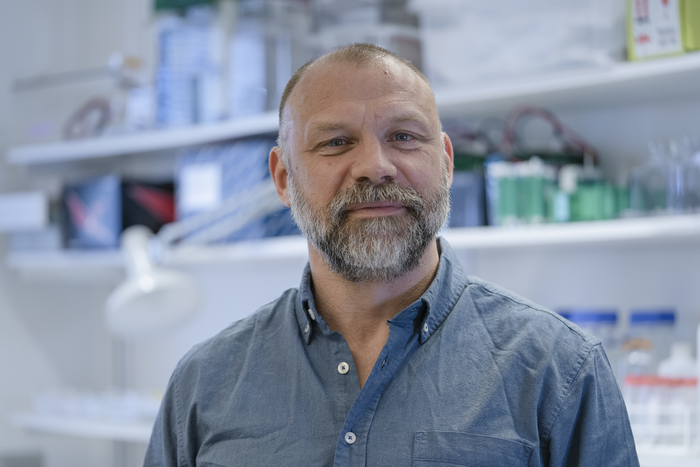Inactivation of a particular protein complex that plays a key role in keeping genes switched off leads to nerve cells not producing enough essential neurotransmitters. This could be part of the explanation for diseases such as Parkinson’s and anxiety disorders. This is the result of a discovery by researchers at Umeå University, Lund University and Karolinska Institutet, Sweden.

Credit: Mattias Pettersson
Inactivation of a particular protein complex that plays a key role in keeping genes switched off leads to nerve cells not producing enough essential neurotransmitters. This could be part of the explanation for diseases such as Parkinson’s and anxiety disorders. This is the result of a discovery by researchers at Umeå University, Lund University and Karolinska Institutet, Sweden.
“We have seen that if this protein complex is inactivated, the ability to keep genes that control other functions switched off is impaired. This, in turn, shuts down genes needed to maintain the function of nerve cells. In animal studies, we can see a change in the animals’ behaviour that is similar to those that occur in Parkinson’s disease,’ says Johan Holmberg,” professor at the Department of Molecular Biology, Umeå University and one of the study’s lead authors.
After neurons are formed during fetal development, they often retain their identity and function for the rest of life. In addition to the need for gene programmes necessary to form and maintain the nerve cell to be active, genes controlling other properties are also required to be permanently “silenced”. The current study shows that this silencing of irrelevant genes depends on a specific protein complex, PRC2.
Without a functioning PRC2 complex, mature neurons that produce the important neurotransmitters dopamine and serotonin gradually lose their identity and function. In Parkinson’s disease, the cells that produce dopamine die, while a lack of serotonin is associated with mental health problems. When tested on mice the researchers observed a progressive change in the behaviour of the mice, such as motor symptoms typical of Parkinson’s disease.
“If we can see that mechanisms controlling the regulation of genes are part of the reason why diseases that damage the nervous system occur, this could open up interesting new possibilities for diagnosis and treatment, but there is still a long way to go,” says Johan Holmberg.
The study was done by knocking out a vital component of the PRC2 protein complex in the nerve cell types of interest in mice. The effects were then investigated using microscopy, behavioural studies, electrophysiology and a combined analysis of gene expression and modifications of histones, the proteins around which the long DNA coils of chromosomes are wound.
The researchers now plan to go further and investigate whether the mechanisms studied in mouse models are indeed involved in neurodegenerative or mental disorders. In addition, the researchers want to find out what exactly controls the downregulation of genes when the PRC2 complex is inactivated. An interesting observation made in the study is that the very subtype of dopamine-producing neurons that die in Parkinson’s disease exhibit a particular sensitivity to loss of PRC2 activity, and they exhibited significantly greater changes in gene expression than other neurons. The mechanisms behind this selective sensitivity are one of the things they want to explain.
Journal
Science Advances
DOI
10.1126/sciadv.abo1543
Method of Research
Experimental study
Subject of Research
Animals
Article Title
PRC2-mediated repression is essential to maintain identity and function of differentiate dopaminergic and serotonergic neurons
Article Publication Date
26-Aug-2022




